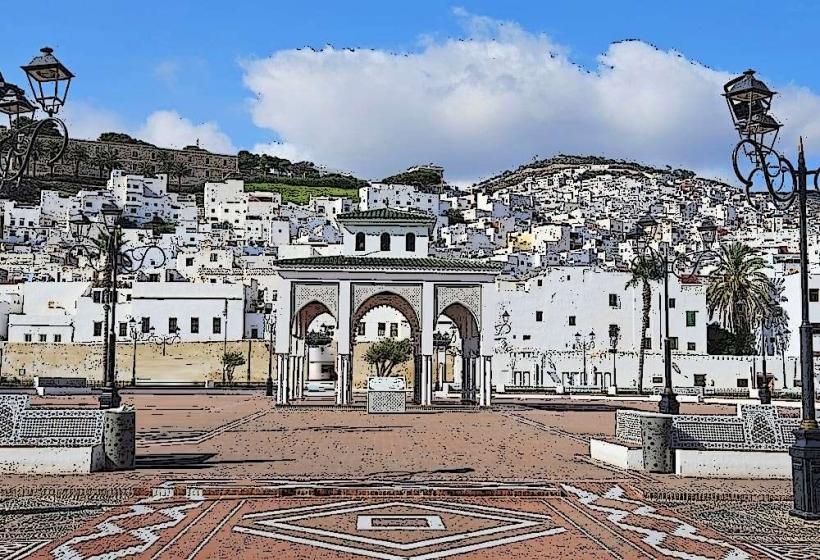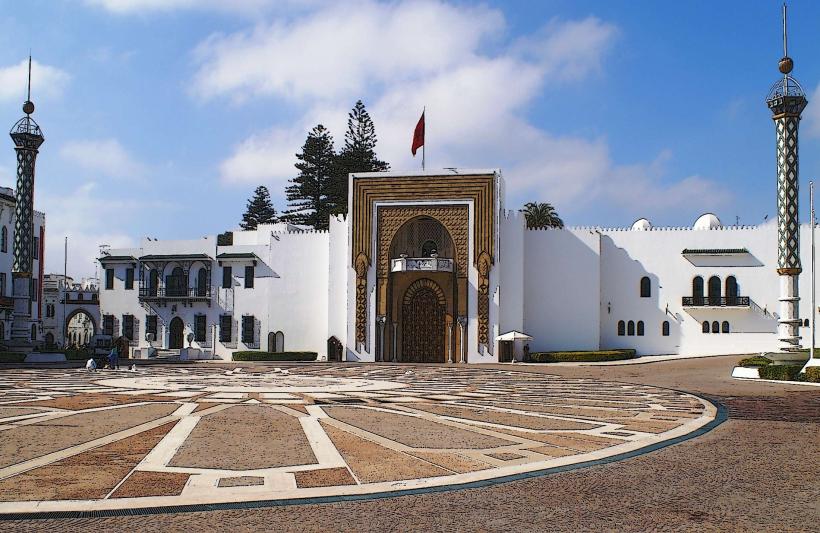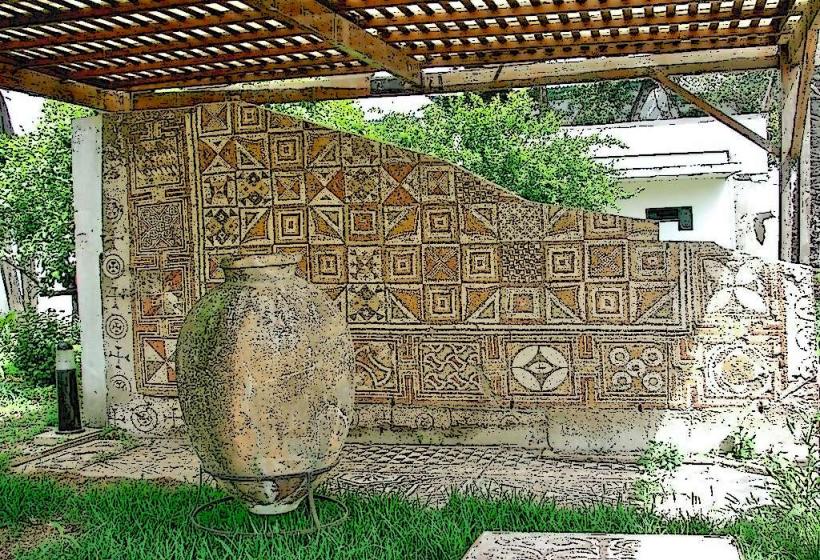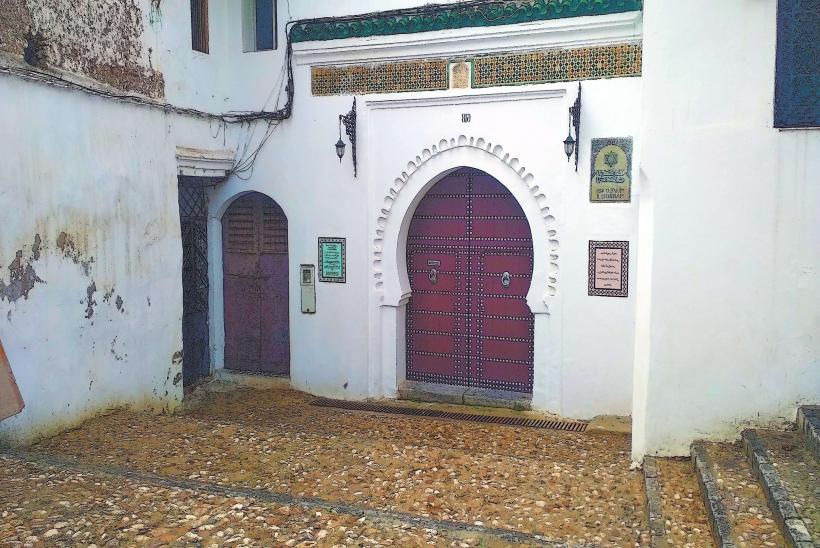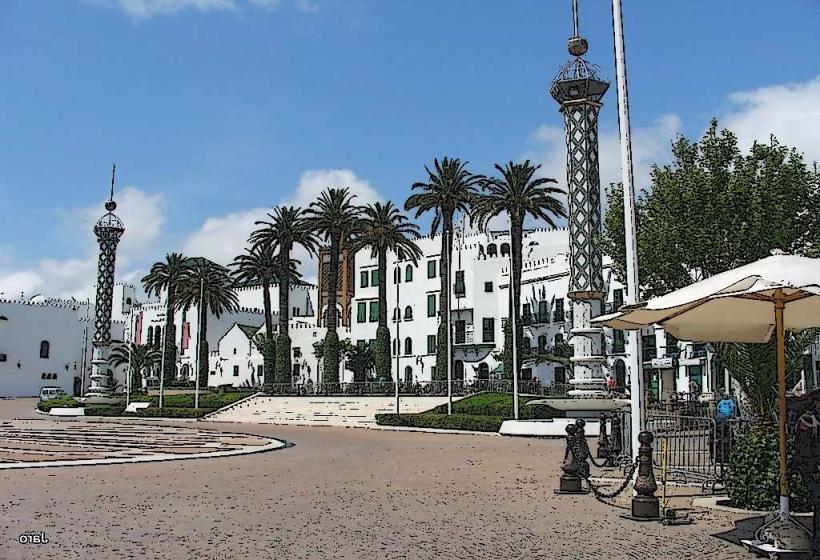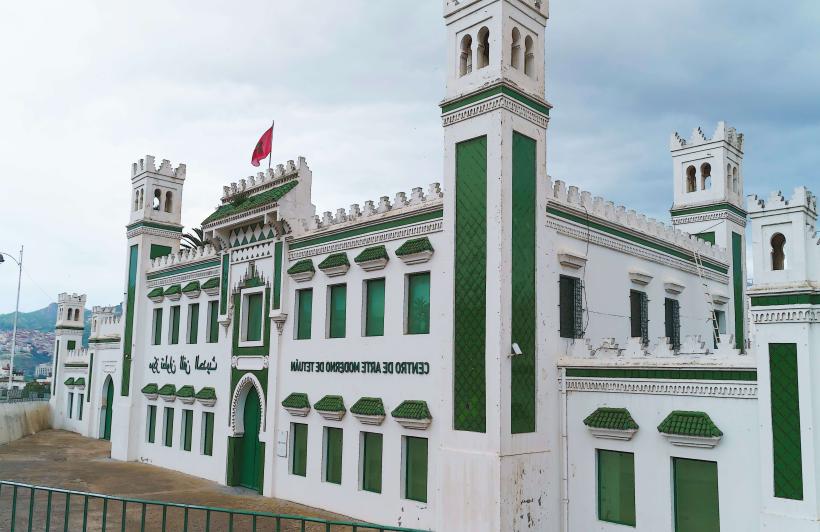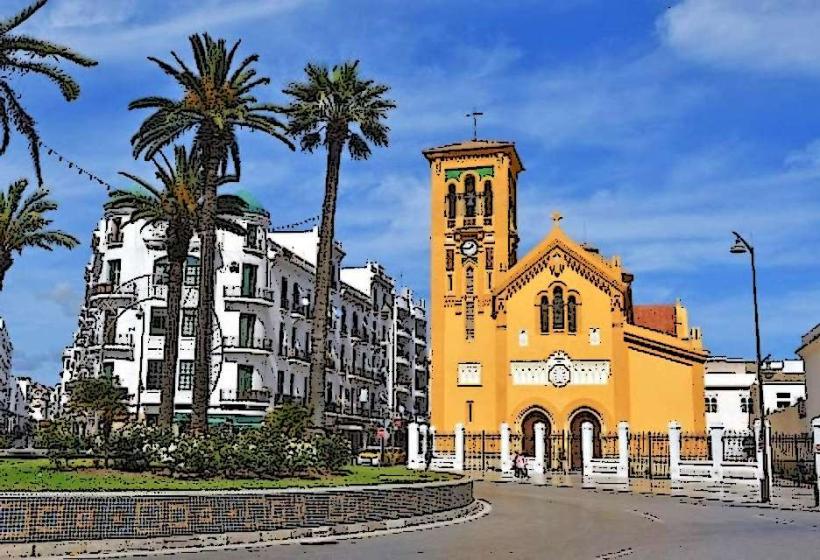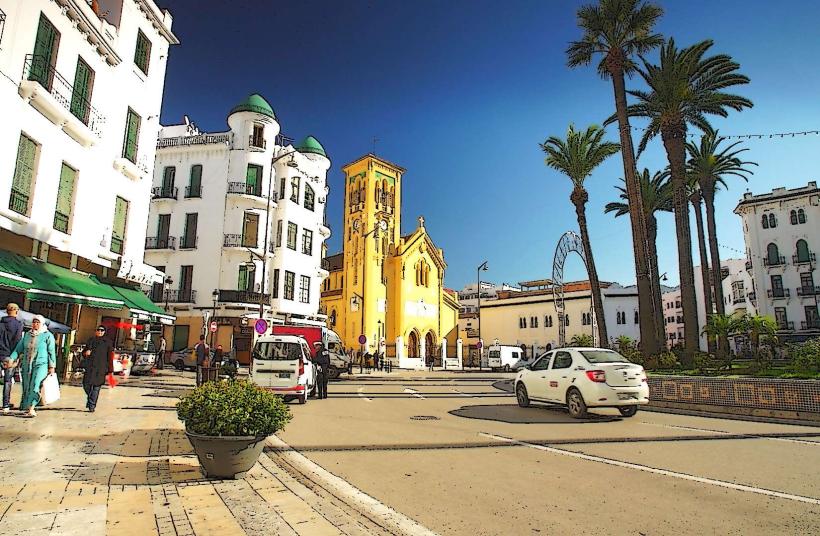Information
Landmark: Souk El FoukiCity: Tetouan
Country: Morocco
Continent: Africa
Souk El Fouki, Tetouan, Morocco, Africa
Souk El Fouki is a historic market located in the Medina of Tetouan, Morocco.
This traditional souk functions as a central marketplace for local goods and crafts.
Visual Characteristics
The souk is characterized by narrow, winding alleyways lined with small shops and stalls. Structures are primarily constructed from local stone and plaster, with many featuring arched doorways and windows. Roofing often consists of wooden beams and tiles, providing shade. Colors are muted, dominated by earth tones, white-washed walls, and the varied hues of displayed merchandise.
Location & Access Logistics
Souk El Fouki is situated within the UNESCO World Heritage medina of Tetouan. Access is via pedestrian entry points into the medina, such as Bab El Okla. The nearest vehicle access is to the perimeter of the medina, with parking available at designated lots outside the walls, such as the parking area near Place El Feddan. Public transport within Tetouan includes local buses and petit taxis that can drop passengers near the medina entrances.
Historical & Ecological Origin
The origins of Souk El Fouki are tied to the establishment and growth of Tetouan's medina, which was significantly developed by Andalusian refugees in the 15th century. It served as a vital commercial hub for trade and artisanal production, a function it has maintained for centuries. The architecture reflects traditional Moroccan and Andalusian building techniques.
Key Highlights & Activities
Visitors can observe and purchase a range of local handicrafts, including leather goods, textiles, pottery, and metalwork. The market is active throughout the day, with specific areas dedicated to different types of goods. Engaging with local vendors for negotiation is a primary activity.
Infrastructure & Amenities
Basic infrastructure includes paved walkways and some covered sections offering shade. Restrooms are generally not available within the immediate souk area; visitors typically use facilities in nearby cafes or public areas outside the medina. Cell phone signal (4G/5G) is generally available within the medina. Food vendors and small cafes are present within and immediately adjacent to the souk.
Best Time to Visit
The best time for photography is in the morning or late afternoon when the light is softer and the crowds are less dense. The market is most active from mid-morning to early evening. Visiting on weekdays generally results in fewer crowds than on weekends.
Facts & Legends
A specific section of Souk El Fouki is traditionally known for its spice merchants, where the air is thick with the aroma of cumin, saffron, and other local spices. It is said that the layout of the souk has remained largely unchanged for over 500 years, preserving its original commercial flow.
Nearby Landmarks
- Place El Feddan (0.2km West)
- Sidi El Mandri Mosque (0.3km North)
- Tetouan Archaeological Museum (0.4km North-West)
- Royal Palace of Tetouan (0.5km North-West)
- Hassan II Mosque (0.6km North-West)

